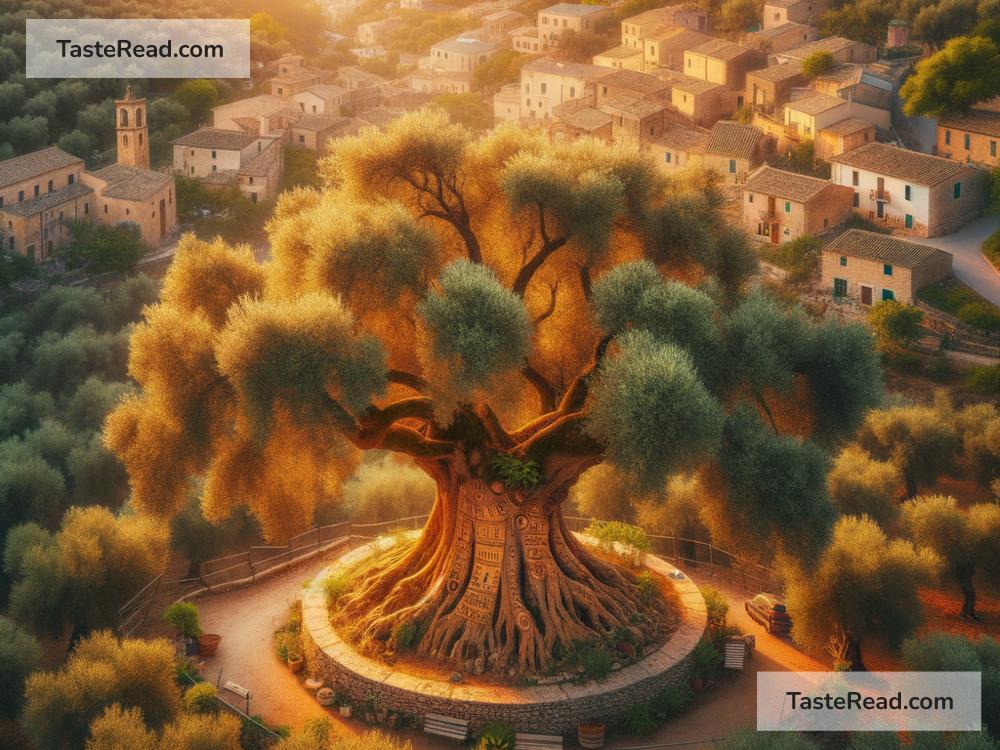The Legend of the Sacred Olive Tree: A Story of Peace, Wisdom, and Growth
In every corner of the world, trees hold a special place in stories. Some symbolize strength, while others represent peace or wisdom. Among all trees, the olive tree stands tall with a rich history and deep meaning. In many cultures, it is a sacred tree tied to legends, traditions, and values that unite people. Today, we’ll explore the fascinating story of the sacred olive tree and how its legacy continues to inspire.
The Birth of the Sacred Olive Tree
The olive tree’s legend is rooted in ancient Greece, where the gods and goddesses often competed to claim ownership of cities. According to one famous Greek myth, the olive tree came into existence during a contest between Athena, the goddess of wisdom, and Poseidon, the god of the sea.
The contest took place in a small city in Greece, which had no name. Poseidon offered the people a gift to prove his worth. With dramatic flair, he struck the ground with his powerful trident, and saltwater sprang up from the earth. This created a spring that proved his control over the seas. However, while the spring was impressive, the water was salty and not very useful.
Athena then stepped forward with her gift. She planted a small seed in the ground, which quickly grew into an olive tree—a tree that could produce olives, olive oil, and wood. Unlike Poseidon’s saltwater, Athena’s gift promised practical benefits. The tree provided food, light, and wood for tools and shelter. It represented peace, prosperity, and wisdom.
The people of the city were so impressed with Athena’s gift that they chose her as their protector, naming the city Athens in her honor. From that day forward, the olive tree became sacred in Athens and throughout the ancient world.
Why the Olive Tree Is Special
The olive tree is not just another plant; it holds deep symbolism. In ancient Greece, people believed the tree was a sign of peace and harmony. When two groups fought, presenting olive branches to one another was a way to ask for forgiveness and stop conflict.
The olive tree also represented wisdom and growth. Just as Athena taught people to use the tree’s fruits and wood wisely, the tree encouraged humanity to use knowledge and resources for good. It became a sign of resilience, as olive trees live for hundreds—even thousands—of years. They endure harsh weather, rocky soil, and challenging conditions, yet they still grow strong and bear fruit. This inspired generations to persevere even during tough times.
The Sacred Olive Tree of the Acropolis
In Athens, the sacred olive tree wasn’t just a story; it became real. Legend says Athena planted the first olive tree on the Acropolis, the hill at the heart of the city that became home to temples and sacred sites. Over time, the tree was known as a symbol of Athena’s wisdom and protection.
History tells us that the tree faced challenges, especially during wars. When the Persians invaded Athens in 480 BCE, they destroyed much of the city, including the sacred olive tree. However, the tree didn’t die—it sprouted again, showing its resilience. The Athenians believed Athena’s spirit protected the tree, and its regrowth gave them hope that their city could also recover and thrive.
Even today, olive trees can be found on the Acropolis, reminding visitors of this sacred connection between the goddess, the tree, and the people of Athens.
The Olive Tree Across Cultures
While the legend began in ancient Greece, the olive tree’s importance spread far and wide. In Christianity, Judaism, and Islam, the olive tree is often associated with purity, peace, and blessings. For example, in the Bible, a dove returns to Noah’s ark with an olive branch, signaling the end of the flood and the start of peace. In Jewish culture, olive oil is used to light menorahs during Hanukkah, representing miracles and blessings.
Countries like Italy, Spain, and Israel celebrate the olive tree not just as a crop but as a symbol of their heritage. Olive oil is a staple in their diets, and olive groves are cherished landscapes.
Lessons from the Sacred Olive Tree
The legend of the sacred olive tree is not just an old story; it carries lessons we can apply to modern life. It teaches us the value of peace, wisdom, and resilience. Just like the olive tree survives through challenges, we can remain strong in hard times. The tree also shows us the importance of thoughtful gifts—what we give should benefit others for years to come, just as Athena’s gift benefitted the city of Athens.
In a fast-paced world, the olive tree reminds us to slow down and appreciate nature’s beauty and wisdom. Trees grow slowly, but their roots run deep. When we focus on steady growth, just like the olive tree, we can achieve incredible things.
Conclusion
The sacred olive tree is more than a legend; it’s a symbol that connects people across cultures and teaches timeless values. Whether you think of Athena’s wisdom, the tree’s resilience, or its role in promoting peace, the olive tree continues to inspire. Next time you see an olive tree or enjoy olive oil, remember its rich history and the message behind its existence: wisdom, growth, and harmony.


